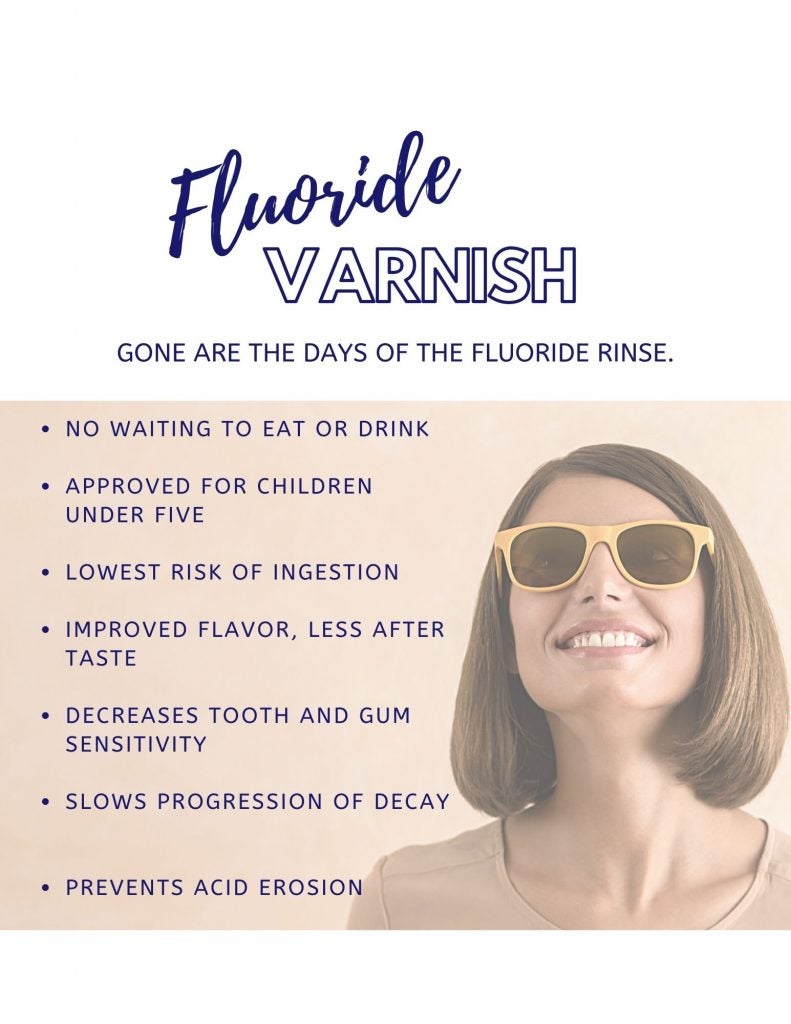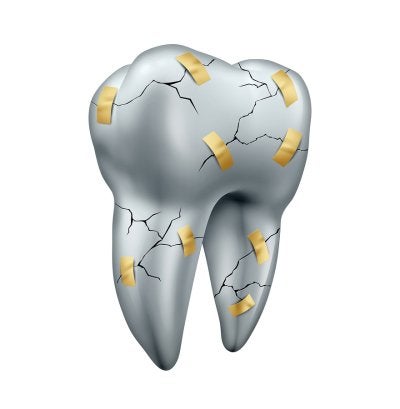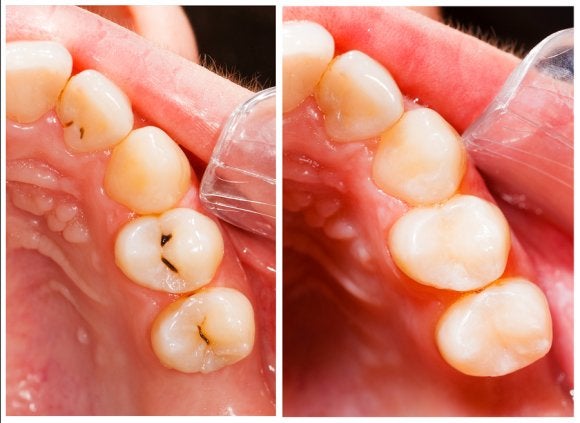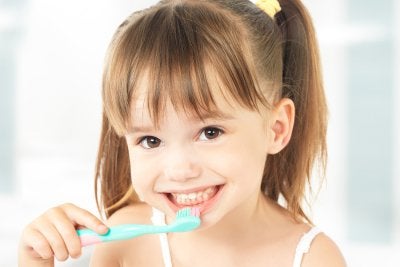-
Maryland Healthy Smiles
The Maryland Healthy Smiles Dental Program is broken into 5 enrollment categories. Those categories are Children, Adult*, Pregnant, Postpartum, and Former Foster Care. Each category has it’s own set of policy allowances and limitations, so it is important to understand which category you fall into. Each patient will be enrolled in only one category at a time, regardless of their situation. This means that although you may have been in foster care and are currently pregnant, it is possible that you are only enrolled in the program under “Adult”.
Enrollment Categories/Plans currently accepted:
- Children (under the age of 21)
- Pregnant Women
- Postpartum
- Former Foster Care (Under the age of 25)
*At this time, we are not accepting new patients enrolled in the “Adult” category/plan.
If you have questions about your coverage or your enrollment category, please contact the Maryland Healthy Smiles Program at 1-855-934-9812.
-
Let’s Take Prevention to the Next Level

-
What to Do About a Chipped Tooth
If you have a chipped tooth in Bel Air, MD, your first step should be to contact your dentist. A chipped, cracked, or knocked-out tooth is one of the most common dental emergencies . While a minor chipped tooth may not initially be accompanied by any adverse symptoms, chipped teeth can result in severe tooth pain or sensitivity. Even teeth that do not appear to be damaged can cause major health problems if left untreated. Keep reading to learn more about what you should do about a chipped tooth, including immediate care, professional care, and follow-up care.

Immediate Care
Even before you contact your dentist, you should rinse your mouth with warm water. After you chip a tooth in an accident or fall, bacteria and dirt can enter your mouth. Simply rinsing the affected area goes a long way toward preventing infection. If your mouth is bleeding, apply a clean piece of gauze and press firmly until the bleeding stops. If you cannot get in to your dental clinic on the day of the accident, purchase dental cement from your local drugstore to seal the tooth.
Professional Care
Depending on the size and severity of the chip, your dentist has many options for fixing your chipped tooth. If the chip is extremely small, a dentist may simply smooth and polish the affected area. If your tooth enamel has been damaged and the chip is visible to the naked eye, your dentists may use a filling, dental crown, or cap to restore the look and function of your tooth. If you have severely compromised the tooth structure, you may need a root canal to remove the infected inner tooth pulp.
Follow-Up Care
Follow-up care for your chipped tooth is highly dependent on your dentist’s recommendations. If you have had a root canal or need a prosthetic device like a crown or bridge, your dentist will give you exact instructions on how to care for your restoration and ward off infection. Regardless of your treatment plan, it is essential to maintain proper oral hygiene after chipping a tooth.
-
Oral Health During Pregnancy
If you are pregnant or plan on becoming pregnant soon, you can expect many changes in your life. In addition to making room in your home for your new family member, you’ll be making many appointments to make sure your health is in good order. This includes calling your dentist in Bel Air, as pregnancy can cause changes in your oral health. Watch this video to learn more about how your dentist can help you maintain good oral health during pregnancy .
As your dentist can tell you, pregnant women may notice that their gums are more sensitive or bleed more easily during the first few months of pregnancy. This is known as pregnancy gingivitis, and is a relatively common occurrence. You should brush your teeth twice per day and floss every day, taking care to use a fluoride toothpaste and a toothbrush with soft bristles, to prevent gingivitis and gum disease. Your diet is important during pregnancy both for you and your growing baby. Go for a variety of fruits, vegetables, and dairy products, and try to minimize your sugar intake to keep your mouth and body healthy.
-
What’s in Your Toothpaste?
Do you know what you can do to prevent gum disease in Bel Air ? Visit your dentist regularly and brush your teeth twice a day. One of the best ways to prevent gum disease and other dental problems is to practice good oral hygiene that includes brushing and flossing. While it is no surprise that brushing your teeth helps prevent gum disease, you may not know what is in your toothpaste that is so important.
The most important ingredient is fluoride, a mineral that helps fight bacteria in your mouth that leads to gum disease. Watch this video for more information about all the ingredients in your toothpaste. From potassium nitrate to help protect sensitive teeth to pyrophosphates to fight tartar, toothpaste is full of active ingredients to keep your teeth healthy. Your dentist can help you learn more about toothpaste.
-
The Uses of Composite Fillings
Composite fillings are used in emergency dentistry, general dentistry, and cosmetic dentistry to restore and repair teeth. Composite fillings are created from a mixture of plastic and glass. They are tooth-colored, making them appear very natural and almost unnoticeable when used to repair a tooth. If your tooth is damaged, visit a dentist near you in Bel Air and ask about composite fillings.
If a tooth is cracked, damaged, chipped, or broken due to decay or trauma, your dentist may recommend removing the damaged portion of the tooth, and replacing it with a composite filling. The composite filling is applied to the tooth in layers, and a special light is used between each layer to harden it. After the filling is complete, the dentist shapes the composite to naturally fit the tooth and match surrounding teeth.
Composite fillings are often used because they look so natural. Your dentist can blend different shades together to perfectly match the natural color of your tooth. Composite fillings also bond to the remaining portion of the tooth, supporting its structure. This protects the tooth from further damage, and insulates it from sensitivity caused by temperature fluctuations. If a damaged tooth is left untreated, more significant treatments, such as root canal therapy, may become necessary.

-
What Exactly Is Fluoride?
You probably know that you should brush your teeth twice a day using fluoride toothpaste. If you are not a dentist in Bel Air , however, you may not understand the significance of fluoride. This ion can help you keep your natural tooth enamel and avoid restorations like veneers down the road. Watch this video to learn more about fluoride.
Fluoride is an ion that can bolster your teeth and help them to fight against cavities. You can find fluoride in soil, water, and rocks, and it is added to some community water and mouth rinses. Fluoride is important because it combats the acids that attack your tooth enamel. If your diet involves a substantial amount of carbs, this is especially important. Your dentist can apply fluoride to your teeth at your next dental checkup, but it is important to use an accepted fluoride toothpaste when you brush your teeth on your own.
-
Teeth vs. Food: The Good and the Bad [INFOGRAPHIC]
Everyone wants to have a beautiful smile full of healthy, white teeth. Depending on what you’re eating, however, you could be doing your teeth a disservice. Certain foods are better for your mouth than others, as your dentist near Bel Air will tell you. You probably know that both hard and chewy candies contain a lot of sugar, which can lead to tooth decay. You may be surprised to find out that even certain fruits are less than ideal for your teeth because they contain high levels of acid. Foods such as low-fat cheese, apples, and crunchy carrots are all mouth-healthy choices. Check out this infographic from Your Smile to learn more about what foods to eat and what to avoid for the health of your teeth and gums. Please share with your friends and family!

-
How You Can Take Care of Your Child’s Teeth
Dental health is important at every age! Family dentistry in Bel Air offers a helping hand in taking care of children’s teeth, but the biggest responsibility starts at home. As parents, it is important to teach children why dental health is so important, as well as how children can keep their teeth and gums healthy:
Keep Gums Clean Before Teeth Emerge
Children typically start getting their primary teeth around four to seven months of age, but that does not mean you should wait until then to start good dental hygiene habits. Keep your baby’s gums clean and healthy by gently rubbing a damp washcloth over them to remove bacteria and food debris. When teeth start appearing, use an infant toothbrush with a tiny amount of toothpaste and a larger amount of water.
Make Brushing and Flossing Fun
When your child is ready to start brushing his teeth on his own, you can encourage good habits by making dental health fun! Keep a radio in the bathroom so you and your child can listen to songs while brushing. This will make the process more enjoyable and help ensure that your child is brushing his teeth for an adequate amount of time. You can also create a game with brushing or flossing or use stickers to reward good dental habits.Be a Good Dental Health Role Model
You can help your child learn about the importance of dental health by maintaining your own dental health! Children constantly look to parents to learn how to act. Showing your child that you love to take good care of your teeth and gums will encourage him to do the same. You can even brush your teeth together in the morning and at night to be each other’s dental health buddies.Visit the Dentist Regularly
Both you and your child should visit the dentist at least twice a year for regular checkups. Start taking your child to the dentist early so it is easier for him to become comfortable and familiar with this environment. Regular dental checkups can also help ensure that your child is practicing proper dental hygiene habits! -
Meet Dr. Danielle Zhu
Home dental care is not enough to keep teeth and gums healthy—you also need to find a great dentist in Bel Air ! A great dentist will help you feel comfortable and make sure you understand concerns and treatment options that can improve your smile.
When you visit Your Smile, you can feel comfortable meeting with Dr. Danielle Zhu. Dr. Zhu specializes in a variety of dental fields, providing treatments for patients of all ages and with an assortment of concerns and dental emergencies. Before becoming a well-known dentist in Bel Air, Dr. Zhu earned her undergraduate degree from UMBC and went on to receive a dental degree from the University of Maryland Dental School. Dr. Zhu also has a prosthodontic clerkship and post doctorate training in advanced general dentistry on her résumé! Along with these accomplishments, patients can also feel comfortable knowing that Dr. Zhu is a member of the American Dental Association, the Academy of General Dentistry, and the Maryland State Dental Association.

RECENT POSTS
categories
- Uncategorized
- General Dentistry
- Toothache
- Emergency Dentistry
- Family Dentistry
- Receding Gums
- Cosmetic Dentistry
- Veneers
- Gum Disease
- Gingivitis
- Dental Crowns
- Orthodontics
- Dental Implants
- Root Canal
- Wisdom Teeth
- Teeth Whitening
- Your Smile
- Composite Fillings
- Lumineers
- Dentures
- Invisalign
- BrightSmile
- Dental Bridge
- Abscessed Tooth
- Sealants
